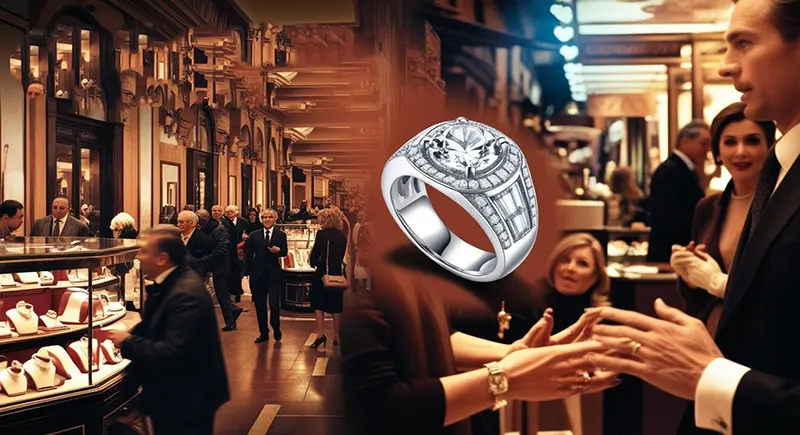The luxury goods industry plays a significant role in Italy’s economy, with a particular focus on high-end jewelry, such as the iconic engagement ring. Italian craftsmanship has long been synonymous with sophistication, elegance, and timeless beauty, making its luxury goods, including engagement rings, highly sought after around the world. The enduring popularity of the royal ring, a symbol of commitment, wealth, and status, has been instrumental in strengthening Italy’s reputation as a global leader in the jewelry market.
Italy’s luxury goods sector, which includes a broad range of items from fashion to watches and fine jewelry, contributes significantly to the country’s GDP. In particular, the jewelry industry has become a major economic pillar, with several of the most prestigious jewelry houses based in Italy. Brands like Bulgari, Pomellato, and Gucci have achieved international acclaim for their intricate designs, quality, and attention to detail. Engagement rings, often seen as a symbol of love and commitment, are an integral part of this industry. The royal ring, as a piece of jewelry with a rich history and cultural significance, reflects Italy’s enduring influence on the global luxury market.
Italy’s jewelry industry has thrived not only because of its craftsmanship but also due to its strategic positioning within global markets. As one of the world’s leading exporters of luxury goods, Italy has been able to capitalize on the growing demand for high-end products, especially in emerging economies. The demand for engagement rings, for instance, has been on the rise in recent years, driven by an increasing number of people in countries such as China, India, and the United States seeking quality and exclusivity in their purchases. The royal ring, with its connection to tradition and opulence, remains a coveted item for those seeking to mark special occasions, making it a key player in Italy’s export strategy.
The economic impact of the luxury goods industry extends far beyond the production of jewelry itself. Italy’s success in the luxury sector has also had a ripple effect on related industries, including tourism, retail, and manufacturing. Tourists flock to Italy to buy luxurious items like engagement rings, often visiting major cities such as Milan, Rome, and Florence, which are home to flagship jewelry boutiques. These luxury shopping experiences contribute to the Italian economy by boosting tourism revenue and creating jobs in hospitality and retail. Moreover, the demand for high-end jewelry has led to the creation of specialized manufacturing hubs across the country, where skilled artisans produce the finest engagement rings and royal rings.
Another important factor in Italy’s success in the luxury goods market is its focus on sustainability and innovation. Many Italian jewelry houses have embraced ethical sourcing of materials and environmentally friendly practices, responding to a growing global demand for responsible luxury. The royal ring, as a symbol of enduring love, is often crafted from precious metals and stones that have been ethically sourced, reinforcing Italy’s reputation for combining luxury with conscience.
In conclusion, the impact of the royal ring on the Italian economy is undeniable. The luxury goods industry, with engagement rings at the forefront, has not only contributed to Italy’s economic prosperity but also solidified its position as a leader in global luxury. Through its blend of tradition, craftsmanship, and innovation, Italy continues to shape the world of high-end jewelry, with the royal ring serving as a timeless emblem of its cultural and economic influence.








